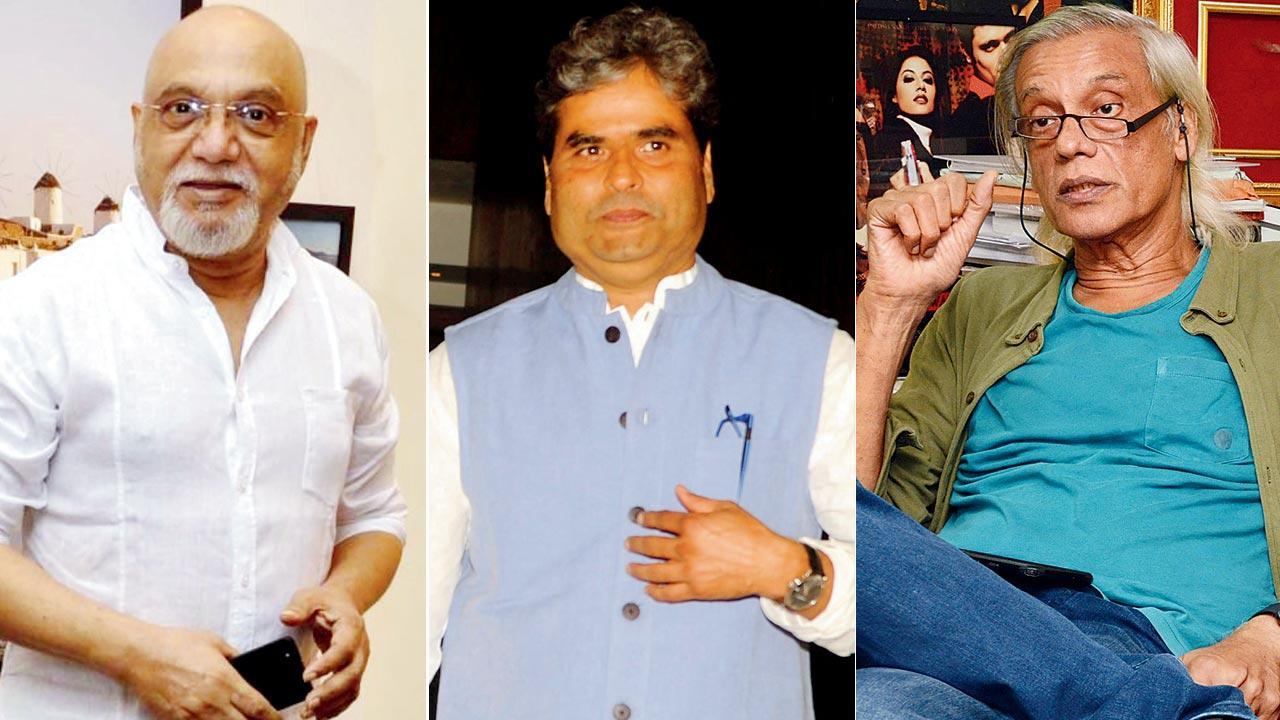Vishal Bhardwaj and Sudhir Mishra have raised their voices against amendment to Cinematograph Act, but producers’ bodies yet to take a stand

Pritish Nandy, Vishal Bhardwaj and Sudhir Mishra
It has been a week since the Union government sought public comments on the draft Cinematograph Amendment Bill 2021, which proposes to arm the Centre with the power to order recertification of a certified film if they receive complaints from viewers, thus putting movies under direct government censorship over and above the Central Board for Film Certification (CBFC).
It could well be seen as another blow for the entertainment industry that is surely and steadily being weighed down by creative curbs — in April, the Ministry of Law and Justice abolished the Film Certification Appellate Tribunal (FCAT) overnight.
The Hindi film industry has remained largely silent on the latest development, barring a few brave voices. While Sudhir Mishra tweeted how the amendment will make “filmmaking impossible”, Vishal Bhardwaj urged the film fraternity to oppose the “unfair provision”.
When mid-day reached out to filmmaker Pritish Nandy, he said it is yet another effort to clamp down creative expression. “On top of censorship, if you were to impose review of censorship, you are unnecessarily creating impossible conditions for creative people. Soon, you will do that to books, music, theatre and everything. The assault on the creative arts is the sign of a government in desperation. The idea is to tame the creative arts because it has the power to change the world. They [the government] cannot kill the spirit of a creative person, but they can do it to a creative process that changes the way people think.” He noted that once the Centre deems a film unfit for viewing, makers will be compelled to move the Supreme Court, which will be an expensive process.
Also Read: Guneet Monga on FCAT: Freedom of speech is being taken away
Down south, National Award-winning director Vetrimaaran has reportedly spoken to the Tamil Nadu Directors’ Association about making a move against the bill. The News Minute quoted him as saying, “[The bill] is their [the government’s] way of trying to control the narratives.” His sentiment was echoed by documentary filmmaker Anand Patwardhan who described the bill as “illegal and unconstitutional.”
mid-day reached out to Bollywood film associations to understand if they intend to open a dialogue with the government on the matter. The Producers’ Guild declined to comment on the story. One of the members from the Guild’s Council of Management, on condition of anonymity, said, “Right now, we have a survival issue. Daily-wagers, producers and actors have made negligible amount of money in the past year. When one’s survival is under question, fighting for creative expression is a battle of luxury.” Another member assured that the issue will be discussed in the next Guild meeting. TP Aggarwal, president, Indian Motion Picture Producers’ Association, said that the matter will be raised at a producers’ meeting today. Ashoke Pandit, president, Indian Film and Television Directors’ Association, added, “It’s too early to comment because we haven’t received anything in writing.”
Also Read: Hear regulation, know it's censorship
For the uninitiated, earlier, under Section 6 of the Cinematograph Act, 1952, the Centre was empowered to call for the record of proceedings in relation to certification of a film and pass any order. However, in 1991, the Karnataka High Court had stated that the union government could not exercise revisional powers on films already certified by the CBFC, a decision that was upheld by the Supreme Court in 2000.
More Changes
. The Cinematograph (Amendment) Bill, 2021 also proposes that content be subjected to age-based classification: U/A7+, U/A13+ and U/A16+. So far, films are certified under three categories: unrestricted exhibition or U, parental guidance required for children under 12 or U/A, and adult films or A.
. The bill will also introduce Section 6AA, which prohibits unauthorised recording, thus curbing film piracy. Those penalised will face a jail term, ranging from three months to three years, and a fine not less than Rs 3 lakh.
Also Read: Ranvir Shorey: Censorship will be a regressive step
 Subscribe today by clicking the link and stay updated with the latest news!" Click here!
Subscribe today by clicking the link and stay updated with the latest news!" Click here!









